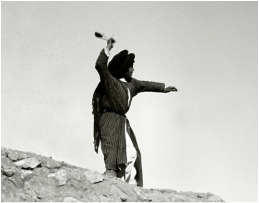Along with knowing the flock, leading the flock, and feeding the flock, a fourth biblical function of the visionary shepherd is to protect the flock. Sheep are in constant need of protection. Read these important words for visionary shepherds from Acts 20:28-30:
Keep watch over yourselves and all the flock of which the Holy Spirit has made you overseer. Be shepherds of the church of God, which he bought with his own blood. _ I know that after I leave, savage wolves will come in among you and will not spare the flock. Even from your own number men will arise and distort the truth in order to draw away disciples after them.
Sheep cannot protect themselves and they won’t work together like other herd animals to protect each other. They will allow the wolf to come and take and kill. Wolves are cunning and can cause tremendous damage to the flock. People who cause division, teach false doctrine, or foster sin, are wolves who work to destroy the flock of God.
Visionary shepherds are to protect the sheep not only from outside dangers, but from potentially dangerous influences that arise from other sheep. Sadly, this is all too common in the context of revitalization and replanting. As Timothy Witmer notes, “Faithful shepherds protect their flocks not only from harmful outside influences but from the self-serving among the sheep.” He goes on,
Many congregations have experienced the intimidation of ‘bullies’ within their midst when leaders fail to take responsibility to shepherd the flock. It is often the strong-willed, outspoken, highly-opinionated folk who fill the void. The point is that there will always be leaders. The issue is whether they are those called and gifted by God to shepherd his flock or those who push themselves forward so that they can push others around.
Visionary shepherds are responsible for protecting their sheep from dangers both outside and inside the fold. This is why one of the most important ways a shepherd can exercise protection of the flock is by fighting off those outside the fold that seek to bring harm to the flock, while at the same time correcting those inside the fold that are potentially harmful and destructive to the sheep. While many shepherds are quick to defend the sheep from outside evils, many times these same shepherds are very slow to bring loving, yet firm, discipline to sheep inside of the fold that are in need of correction. Visionary shepherds must remember that this kind of discipline is an act of love for the good of the sheep and for the health of the replant. Therefore, it must be approached with great gentleness but firmness with the end goal of helping back-slidden sheep to grow and mature in Christ.
A second way in which the visionary shepherd protects the flock under their care is through humble, persistent prayer. Why must this kind of prayer be a non-negotiable in pastoral ministry and specifically replanting?
Several reasons. First of all, prayer for everyone is commanded in scripture. Paul writes, “I urge, then, first of all, that requests, prayers, intercession and thanksgiving be made for everyone…” (1 Tim. 2:1). Prayer is not just a good idea; it is not just good strategy; it isn’t just something we can do if we have extra time in the evening. For the visionary shepherd, prayer is a non-negotiable, foundational element of everything we do in church replanting and revitalization. God works through the means of our prayer to protect, strengthen, and encourage His people in declining congregations. Therefore, prayer must come before, during, and after every act of our pastoral leadership as replanters.
Praying for our people, especially the unsaved, pleases God. Again Paul writes, “This (prayer for everyone) is good, and pleases God our Savior” (1 Tim. 2:3). This should be incentive enough to pray – the goal of our lives needs to be to glorify, honor, and please God. Prayer is part of what it means to live a life that honors God. However, for the visionary shepherd, we must understand that our prayer is connected to the salvation of lost people, of lost sheep. Paul continues in 1 Timothy 2, “… (he) wants all men to be saved and to come to a knowledge of the truth.” Praying for people who do not know God and who are not saved is foundational to the task of evangelism, which is an essential and fundamental aspect of biblical shepherding. Visionary shepherds are called by God to be praying-leaders who pray without ceasing. This means consistently lifting up both the lost and the found under their care.
Put it into practice: Here are a few strategies for visionary shepherds as they work to protect the sheep under their care:
- Follow the instruction of Matthew 18:15-16 when the need arises to confront wandering sheep. The hope is that these wandering sheep will be restored through this process, while healthy sheep are protected from those who would potentially lead them astray.
- As individual sheep in a congregation are shepherded, seek to be sensitive to life situations and circumstances in which private instruction and warning from the Scriptures are appropriate.
- Set aside and prioritize time each day for the sole purpose of praying for God’s protection over the flock as a whole and over individual sheep as needs arise.
Ultimately, as we consider some of the specific ways shepherds can effectively protect the sheep, it is critical to remember that this kind of protection takes intentional thought and care. This is a weighty aspect of our role as visionary shepherds. May we remember that the same Lord who called us to shepherd His people will also strengthen and empower us to fulfill this very task for His glory and the good of His people.
Published September 29, 2015



